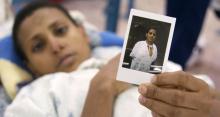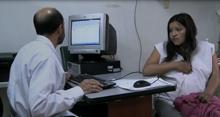Prioritizing Mothers
Big Ideas
Leading thinkers and activists share game-changing ideas about motherhood and improving maternal health and women's rights.

If I asked you to think of a cause where more advocacy work is needed, what might you say? The environment, perhaps? Civil liberties? Animal rights?
How far down on that list might we find “motherhood”?
For many people, the issue of mother’s rights and maternal health is not at the forefront of our minds when it comes to advocacy. Yet I believe that this lack of awareness around maternal health advocacy is the main reason more progress is not being made. I believe that, in order to make true progress on maternal health, we need to forge a strong, collective community that will vocalize the need for change to our policy makers and global leaders.
I became a maternal health advocate when I became a mother. After delivering my daughter I began to hemorrhage. My complication was managed by a competent team of health workers (a doula, nurses, a midwife and ultimately an obstetrician), but I soon learned that thousands of women around the world die from the same cause. In fact, Post Partum Hemorrhage (PPH) is the leading cause of pregnancy and childbirth related death in the world.
What shocked me even more was the fact that, of the 358,000 women who die each year, almost all could be saved with adequate medical care. It’s incredible that we know what it takes to save most women’s lives in childbirth, and yet thousands die each year because even the most basic care is out of their reach.
How can this be? What’s missing?
First, it’s the political will. We need global leaders and policy makers to take decisive action on improving maternal health. Fortunately, in recent years policymakers have signaled that global maternal health is an issue on their radar screen, and that they intend to act. Progress is being made, but we’re still far from the goals we’ve set for ourselves as an international community. The true problem is that even though leaders know this is an issue, too many of their citizens do not, and therefore are not raising their own voices to ask that it be made a priority.
That brings me to the second problem: We have not managed to make the lives of mothers a priority. It is a human rights injustice to allow women to die when we know how to save them. Women everywhere go through the same physical experience. Women everywhere need the same care and support and women everywhere should have that access. If we can recognize our inherent connection to other mothers, we can make saving their lives a priority. Every mother should have the chance to live and raise her child.
After my health scare as a result of delivering my daughter, I became engrossed in learning the facts and trying to make sense of the disparities- so much so that I even began studying for my Masters in Public Health at Columbia University. I believe that when others learn the facts, like I did, they will not be able to deny them. I think that mothers everywhere share a sisterhood- a shared experience, an instant connection, and that community can fuel change. What is needed is a unified voice— a deeply engaged group of champions for this issue. We know what it takes to save most women's lives in childbirth, and in fact, most of the solutions are incredibly simple. Yet in many places even the most basic care is still out of reach for women. They are hindered by distance, by funding, or by the fact that their own community and family don’t have the information they need to make the decision to seek out skilled professionals. Without access to care before, during or after delivery, these women (who are too often merely adolescent girls) are left incredibly vulnerable.
That’s really what Every Mother Counts is about—reaching out to raise awareness about these issues. But more than that, it’s about creating a movement by empowering people to get involved and make a difference. If we come together and make some noise to signal that this IS a priority to us and that we believe the mothers of the world deserve better- then we can make a difference. We can do it on our own and we can push our leaders to follow suit. Those of us who are empowered to give voice to an otherwise silent tragedy that takes from the world 1000 mothers every day of every year, must do so.
Related Content
|
Kavita Ramdas explains how limited access to contraceptive methods for women around the globe helps to maintain and further aggravate the world’s impoverished state. |
Sarah Henderson tells the story of an Ethiopian woman who suffered from fistula and who received care at Hamlin Fistula Hospital. |
This photo essay shows the mothers and children of Bangladesh, where extreme poverty reigns but maternal health has improved in recent years. |
A woman in Colombia gives birth in this short film, which also illuminates the problems related to limited medical resources for women. |





